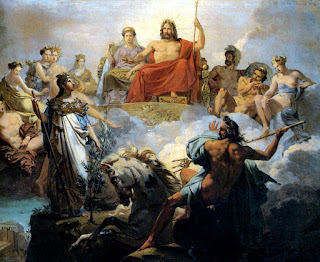Story Lab
I really enjoyed the Crash Course Mythology videos. Mike Rugnetta explains everything in a well-spoken manner. In the first video, he laid out the definition of mythology that was going to be used. If something is referred to as a myth, it doesn't assign any truth value to it. That is to say, it doesn't make it definitively true or false. Myths are simply stories that hold a powerful significance in conceptualizing certain functions of the world and society. They are also stories that have staying power, such as lasting for centuries or millennia.
Episode 12 discussed varying theories of mythology in progression from the archaic to the more modern. It was very interesting to hear the variety of vastly different theories about the psychological, scientific, political, and religious nature of mythology. Such figures as Sigmund Freud, Carl Jung, Joseph Cambell, and Levi-Strauss were presented with their respective theories. I thought Jung's theory about cosmic forces creating a collective human consciousness that we all draw the same archetypes from to be intriguing.
The final video was about the journey of mythological heroes, known as the monomyth. This name refers to the idea that all heroic stories share the same overall structure. Things like a call to action or an initiation begin the hero's journey. Throughout the journey, the hero overcomes many obstacles and is ultimately changed into a new person. At the end of the story, the hero, now changed, must return back to the old world and resume his normal life.
Bibliography. "Crash Course: Mythology" Youtube Web Source




Comments
Post a Comment